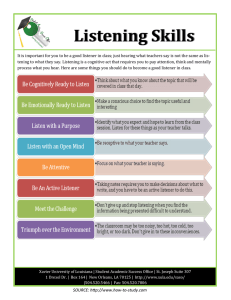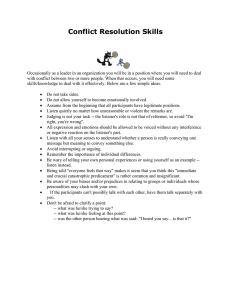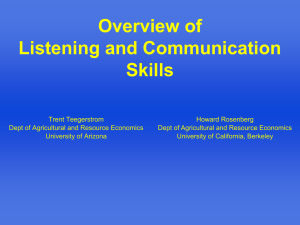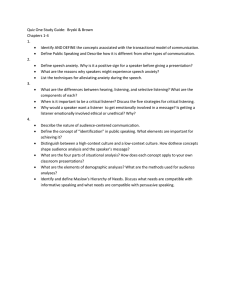Elements of Effective Listening
advertisement
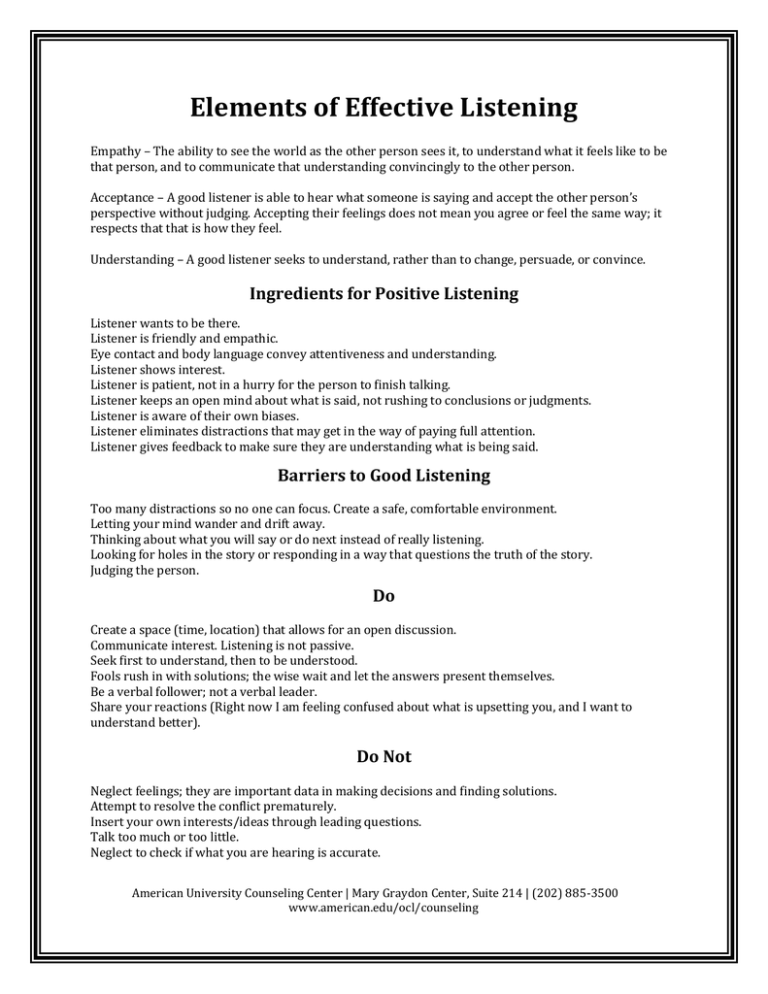
Elements of Effective Listening Empathy – The ability to see the world as the other person sees it, to understand what it feels like to be that person, and to communicate that understanding convincingly to the other person. Acceptance – A good listener is able to hear what someone is saying and accept the other person’s perspective without judging. Accepting their feelings does not mean you agree or feel the same way; it respects that that is how they feel. Understanding – A good listener seeks to understand, rather than to change, persuade, or convince. Ingredients for Positive Listening Listener wants to be there. Listener is friendly and empathic. Eye contact and body language convey attentiveness and understanding. Listener shows interest. Listener is patient, not in a hurry for the person to finish talking. Listener keeps an open mind about what is said, not rushing to conclusions or judgments. Listener is aware of their own biases. Listener eliminates distractions that may get in the way of paying full attention. Listener gives feedback to make sure they are understanding what is being said. Barriers to Good Listening Too many distractions so no one can focus. Create a safe, comfortable environment. Letting your mind wander and drift away. Thinking about what you will say or do next instead of really listening. Looking for holes in the story or responding in a way that questions the truth of the story. Judging the person. Do Create a space (time, location) that allows for an open discussion. Communicate interest. Listening is not passive. Seek first to understand, then to be understood. Fools rush in with solutions; the wise wait and let the answers present themselves. Be a verbal follower; not a verbal leader. Share your reactions (Right now I am feeling confused about what is upsetting you, and I want to understand better). Do Not Neglect feelings; they are important data in making decisions and finding solutions. Attempt to resolve the conflict prematurely. Insert your own interests/ideas through leading questions. Talk too much or too little. Neglect to check if what you are hearing is accurate. American University Counseling Center | Mary Graydon Center, Suite 214 | (202) 885-3500 www.american.edu/ocl/counseling
